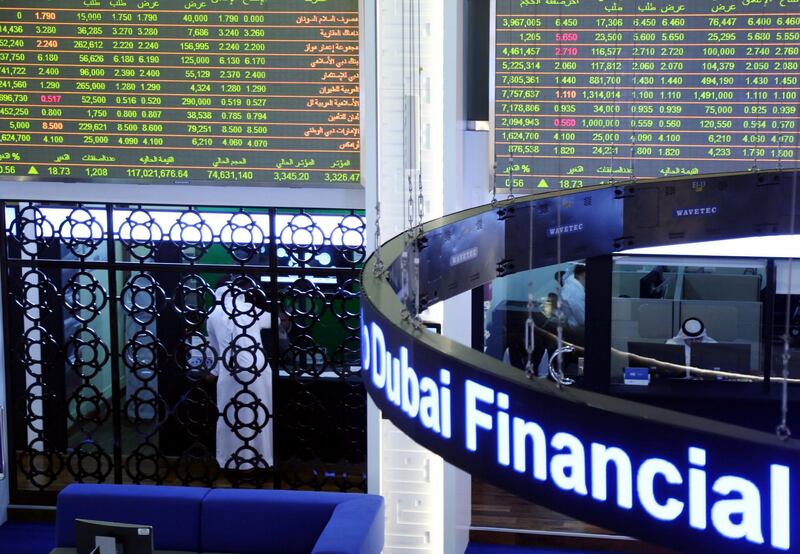Most of the Arabian Gulf equity markets shrugged off on Sunday the US-led military strikes on targets in Syria over the weekend, as investors counted on the uptick in oil prices and first quarter earnings season to buoy stocks.
Saudi Arabia, the top Arab stock market, rose 1.9 per cent with all but one stock falling. Petrochemical stocks, which stand to benefit from higher oil prices, led the increase, with Nama Chemicals rising as much a 9.98 per cent. Sabic, the biggest Arab petrochemical maker, inched up 1.77 per cent.
The US, UK and France launched a coordinated air campaign of strikes on Saturday morning, targeting a research centre, two chemical weapons facilities and a Syrian regime command centre in response to the use of chemical weapons in rebel-held Douma, a week previously.
Regional stock markets are up this year on the back of rebounding oil prices, which closed last week at more than a three-year high. Brent ended Friday at $72.58 per barrel. In New York, futures rallied to the highest level since 2014, settling at $67.39 a barrel.
_________________
Read more:
[ Foreign investors pile into Saudi Arabia in March amid kingdom's FTSE upgrade ]
_________________
International investors snap up $1.18bn of regional stocks, remaining net buyers
The price of Brent, which fell from $115 per barrel level in mid-2014 to less than $30 a barrel in the beginning of 2016, has enjoyed a slow uptick since last year on the back of output curbs undertaken by Opec and producers outside the group, led by Russia.
“The [equity] market is quite bullish as far as the future of oil price is concerned. Since last month there have been several signals: the reduction of the OECD oil inventory level; the long term Saudi-Russian cooperation and much skepticism regarding tight oil capability to fill the demand gap,” said Mazen Al Sudairi, head of research at Al Rajhi Capital in Riyadh.
“With regard to the Syria strikes, the market believes that it is tactical and may have limited impact. The uptick of the market is more related to future earnings.”
In Dubai, the market rose 1.83 per cent, led by property stocks.
Emaar, the biggest listed developed, advanced 2.93 per cent, while Deyaar rose 2.15 per cent after announcing a 25 per cent increase in first quarter net profit.
Marka, the Dubai retailer, was the worst performer, falling 10 per cent after announcing plans to reduce its capital to extinguish accumulated losses of Dh450 million and then increase issued share capital, two recommendations subject to approval by shareholders during a general assembly meeting to be held on April 30.
In Abu Dhabi, stocks gained 1 per cent. Real state developer Aldar rose 2.9 per cent after announcing on Sunday that it has raised its foreign ownership limit to 49 per cent from 40 per cent.






